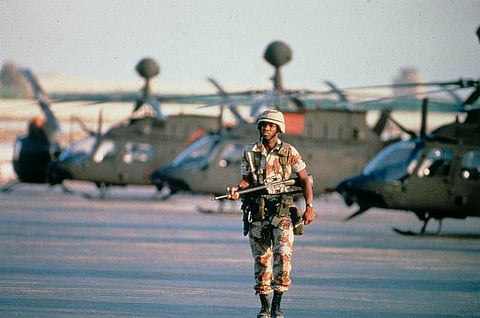

The U.S. Senate has voted to pass the 2026 National Defense Authorization Act (NDAA), which includes a landmark amendment repealing the 1991 and 2002 Authorizations for Use of Military Force (AUMFs) against Iraq. These authorizations—passed for the Gulf War and the Iraq War respectively—granted U.S. presidents broad authority to deploy military force in Iraq without requiring new congressional approval.
The repeal, which is expected to be signed into law by President Donald Trump once the bill reaches his desk, represents the most significant rollback of executive war powers in decades. Lawmakers from both parties have long argued that the two AUMFs are obsolete and have been repeatedly misused by successive administrations to justify military actions far beyond their original intent.
The 1991 Gulf War authorization was later cited to justify limited U.S. military operations such as 1996’s Operation Desert Strike and 1998’s Operation Desert Fox air campaign against Iraq. Meanwhile, the 2002 Iraq War resolution was used to authorize U.S. airstrikes against ISIS targets in Iraq and Syria after 2014, and controversially invoked to justify the 2020 drone strike that killed Iranian General Qassem Soleimani and Kata’ib Hezbollah leader Abu Mahdi al-Muhandis in Baghdad—an action taken without prior congressional consultation.
The move to repeal comes as the U.S. continues its phased withdrawal from Iraq. American forces have now departed from Iraq’s federal provinces, with a complete pullout from the autonomous Kurdistan Region expected by September 2026, which many analysts believe will also be accompanied by a withdrawal from Syria as well.
While the repeal restores some congressional oversight, the 2001 AUMF—enacted after the September 11 attacks and still in effect—remains untouched. That authorization continues to give the U.S. president sweeping authority to use force against terrorist groups and “associated forces” worldwide, meaning the executive branch still retains significant unilateral power to wage limited wars abroad.